Would you believe that two of the simplest ingredients in your home—lemon and charcoal—could create a natural powerhouse with multiple uses for health and daily living? While it may sound like an internet hack, this combination actually has deep roots in traditional remedies.
Charcoal (especially activated charcoal) has long been used to trap toxins, neutralize odors, and support digestion. Lemons, on the other hand, are well known for their vitamin C, antioxidants, and cleansing properties. Put them together, and you get a versatile blend that people have used for everything from teeth whitening to natural detox drinks.
In fact, research published in the Journal of Food Science highlights how activated charcoal can bind certain chemicals, while lemon’s acidity helps with cleansing and flavor. Combined, they offer a natural solution that may reduce your dependence on commercial cleaning products, beauty treatments, and even some over-the-counter remedies.
This article will explore how lemon and charcoal work together, practical ways to use them safely, real-life examples, and what science says about their effectiveness. By the end, you’ll know exactly why this simple mix is often called a “hidden treasure” for both health and home.
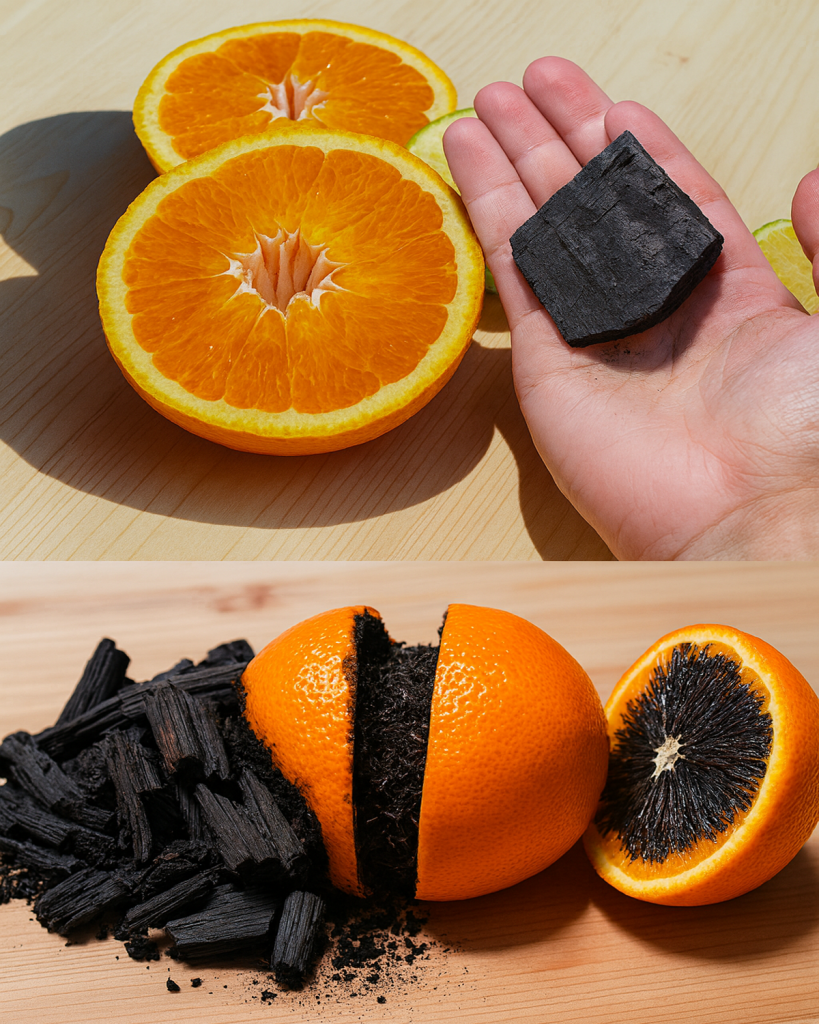
Why Lemon and Charcoal Make Such a Strong Duo
Both lemon and charcoal bring unique properties to the table.
The Benefits of Lemon
- Rich in vitamin C, supporting immunity and skin health.
- Contains citric acid, which helps break down buildup and stains.
- Natural antibacterial properties, useful in cleaning and oral care.
The Benefits of Charcoal
- Highly porous surface binds toxins and impurities.
- Commonly used in hospitals for certain types of poisoning.
- Helps reduce gas and bloating when used correctly.
- Absorbs odors and chemicals in home applications.
When combined, lemon provides freshness, acidity, and antioxidants, while charcoal provides deep cleansing and detoxifying action.
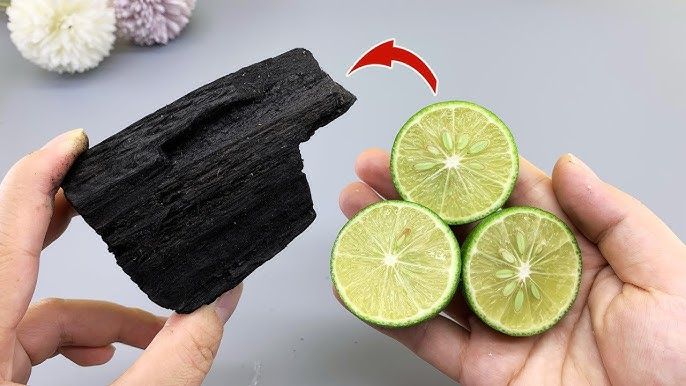
Practical Everyday Uses
So how can you actually use this combination at home? Here are the most common and practical ways.
1. Natural Teeth Whitening Paste
- Mix a pinch of activated charcoal with a few drops of lemon juice.
- Apply gently with a soft toothbrush.
- Rinse thoroughly after 1–2 minutes.
Caution: Overuse may erode enamel due to lemon’s acidity. Use only once a week.
2. DIY Face Mask for Clear Skin
- 1 teaspoon charcoal powder
- 1 teaspoon lemon juice
- A few drops of honey or aloe vera (to reduce dryness)
- Apply for 10 minutes, then rinse.
This may help unclog pores, remove oil buildup, and brighten skin tone.
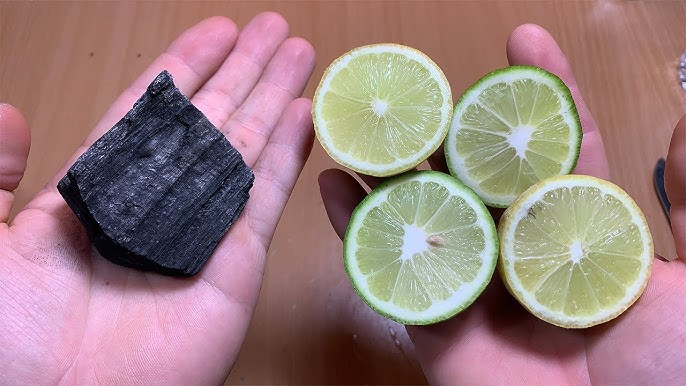
3. Natural Deodorizer
- Mix charcoal powder with lemon juice and place it in a small bowl.
- Leave it in the fridge or bathroom to absorb odors naturally.
4. Digestive Support Drink (With Caution)
- ½ teaspoon food-grade activated charcoal
- Juice of half a lemon
- One glass of water
Drink occasionally to help relieve bloating. Avoid frequent use, as charcoal can interfere with medication absorption.
| Use | Ingredients | Benefit | Safety Tip |
|---|---|---|---|
| Teeth whitening | Charcoal + lemon | Removes surface stains | Limit to once a week |
| Face mask | Charcoal + lemon + honey | Brightens, cleans pores | Patch test first |
| Deodorizer | Charcoal + lemon | Neutralizes odors | Keep away from kids |
| Digestive drink | Charcoal + lemon + water | May ease bloating | Avoid with meds |
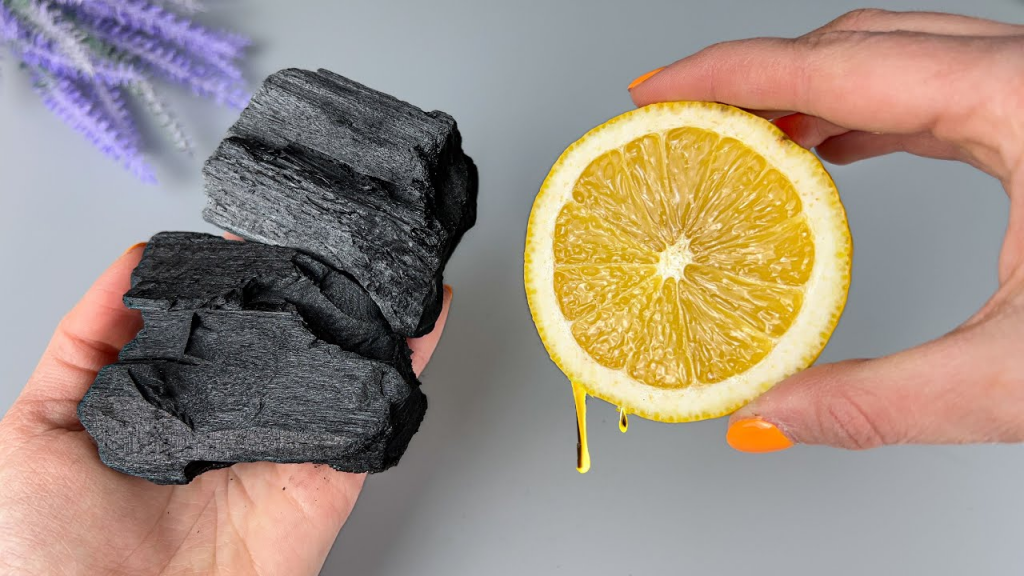
What Science Says
While traditional use is strong, modern science provides important insights.
- Teeth Whitening: Charcoal removes surface stains, but lemon’s acidity can weaken enamel if overused. Dentists recommend occasional use only.
- Detox Effects: Charcoal binds toxins in the gut, but it also binds medications and nutrients, which can reduce their effectiveness. Timing is crucial.
- Skin Benefits: Charcoal helps draw out impurities, while lemon offers antibacterial support. However, lemon can increase sun sensitivity, so sunscreen is essential after application.
In short: the combination works, but moderation and caution are key.
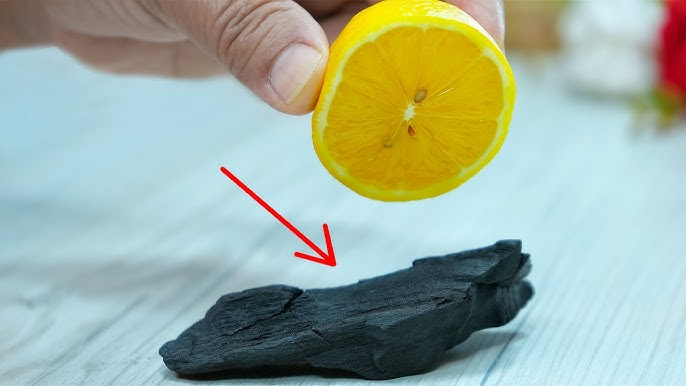
Real-Life Example: Sarah’s Experience
Sarah, a 34-year-old teacher, often struggled with occasional bloating and dull skin. After hearing about the lemon-charcoal mix from her grandmother, she started using a charcoal-lemon mask once a week and occasionally made a digestive drink (with her doctor’s approval).
Within a month, she noticed clearer skin and felt lighter after meals. While she still relies on her usual skincare and medical advice, the natural remedy became a supportive part of her lifestyle.
Her story reflects what many people experience: natural remedies can complement modern routines when used wisely.
Tips for Safe and Effective Use
- Always use food-grade or activated charcoal—never use charcoal from barbecues or burnt wood.
- Dilute lemon juice to reduce acidity and prevent irritation.
- Do not overuse—2–3 times per week is enough for most applications.
- Consult a healthcare provider before drinking charcoal mixtures, especially if taking medications.
- Store properly—keep charcoal in a sealed container away from moisture.
Common Myths vs. Facts
- Myth: Charcoal and lemon can replace all medicines.
Fact: They may support minor issues but cannot replace medical care. - Myth: Drinking charcoal daily is the best detox.
Fact: Overuse can block nutrient absorption and harm digestion. - Myth: Charcoal instantly whitens teeth permanently.
Fact: It may remove surface stains but cannot change natural enamel color.
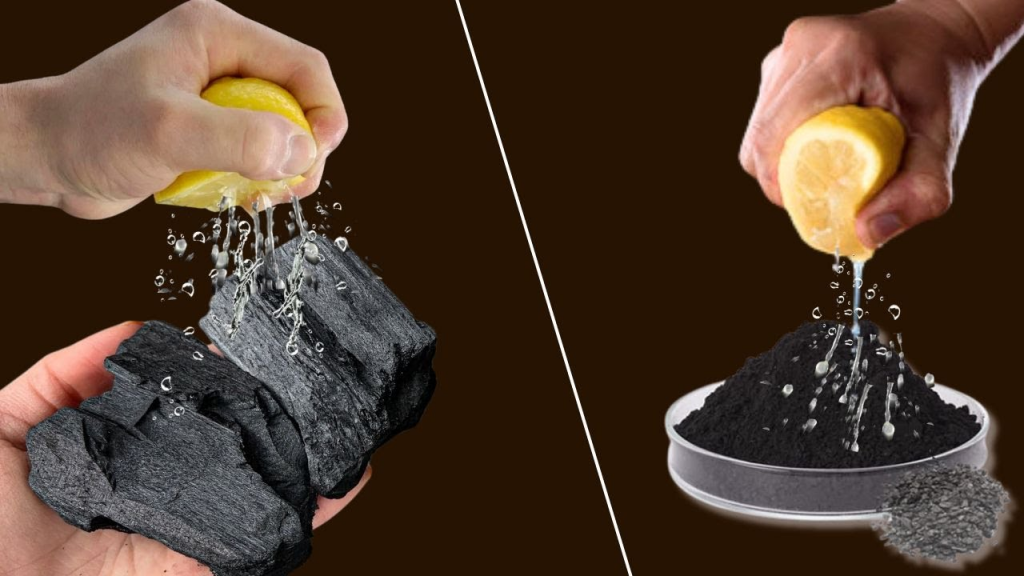
Conclusion
Does mixing lemon and charcoal really work?
Yes, it can support oral care, skincare, and digestion, but results depend on careful and moderate use.
Is it safe for daily use?
Not recommended. Limit to 1–3 times weekly depending on the purpose.
Can it replace store-bought products?
In some cases, yes—such as natural deodorizing or occasional skincare. But it cannot replace medical treatments.
Who should avoid it?
Pregnant women, children, and anyone on medication should avoid charcoal drinks without medical advice.
This article is for informational purposes only and does not replace professional medical advice, diagnosis, or treatment. Always consult your healthcare provider before starting new remedies, especially if you have existing health conditions or take medications.




